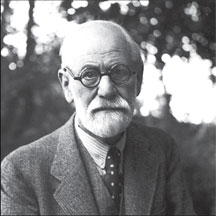Facing life’s battles stoically
 If you read any newspaper, your eyes will not miss deaths of men,
women and children of different age groups. Most of them do not die
natural deaths. In most cases, they die at the hands of criminals,
reckless drivers, contract killers, distraught lovers and frustrated
husbands. If you read any newspaper, your eyes will not miss deaths of men,
women and children of different age groups. Most of them do not die
natural deaths. In most cases, they die at the hands of criminals,
reckless drivers, contract killers, distraught lovers and frustrated
husbands.
In most countries, criminals get away if they have the right
connections with the law enforcement agencies. If they are charged in a
court of law, eminent lawyers will appear for them to plead their
innocence. If they are convicted and jailed, corrupt jailers are ready
to provide them with all the comforts. If they are killed by a rival
group, the society gives them a grand funeral.
Even if the death penalty is implemented, there won’t be a
significant drop in crimes, say sociologists. Criminals will do what
they want quite unmindful of punishment or repercussions. Then how can
law-abiding citizens live in such a society? Are they destined to live
in fear of death at the hands of a criminal? Many philosophers,
sociologists and psychologists have addressed this issue for a long
time.
Agony of life
Jiddu Krishnamurti in Total Freedom posits the question quite
philosophically: “Why do human beings die so miserably, so unhappily,
with a disease, old age, senility, the body shrunk, ugly? Why can’t they
die naturally and as beautifully as this leaf? What is wrong with us? In
spite of all the doctors, medicines and hospital operations and all the
agony of life and the pleasures too, we don’t seem able to live with
dignity, simplicity and with a smile.”
 |
|
Sigmund Freud: Our behaviour is
governed by the id, ego and superego |
Krishnamurti does not deal with senseless killings directly. When a
man is killed violently, he will die a natural death. His body will be
in a shambles. His kith and kin will avenge his killing. However, the
dead body is given all the honours imaginable. Money will be spent
lavishly for his funeral where an oration will be made praising his
services to society.
This is quite in contrast to funerals that take place on the banks of
the Ganges in India. A small group of people would bring the body
wrapped in clothes. After placing it on a makeshift pyre, they would set
fire to it without much ado. When the flames go up the few people who
had gathered there would disperse.
Funerals
A funeral in the so-called sophisticated societies is a costly
affair. Undertakers, caskets, drummers, white clothes, hearses and the
procession have come to stay whether we like them or not. Even the body
is kept for several days waiting for the relatives’ arrival from far
away places. At the end of the whole affair, most survivors try to make
ends meet as they have run into debts.
On the other hand, aren’t we living in fear of death? We go to our
workplaces early in the morning and return home quite exhausted. At the
end of the month, we get some money for our survival. If you are a
businessman, you will try to earn more money and acquire more comforts.
At home we have our own family conflicts. Our lives are full of fears,
anxiety and grief. However, we do not want to give up this pattern of
living. When we reach the old age, we begin to fear the approaching
death.
According to most religions, there is a next life after death. If
there is a next life, there is no need to live in fear of death. On the
other hand, we cannot afford to kill others or even ourselves. We should
not steal what belongs to others. We should not commit adultery or other
moral offences. If we lead an exemplary life, there is no need to fear
death.
Human behaviour
According to the renowned psychoanalyst Sigmund Freud, our behaviour
is governed by three components. They are the id, ego and superego. The
id is the primitive and instinctive component of personality that
operates according to the pleasure principle. For a child, an ice-cream
gives him pleasure.
For a youth, even the presence of a beautiful girl might give
pleasure. An elderly man might want to have a little more comfort in
life. All this shows that the id is usually illogical and
fantasy-oriented.
As we mature in life, the ego begins to operate according to the
reality principle. The ego keeps you out of trouble by taming the
unbridled desires of the id. It is like a man on horseback holding in
check the superior strength of the horse. The superego is the moral
component of personality that incorporates social standards about what
represents right and wrong. If not for the superego, most of us would
have ruined our lives.
Most of the crimes can be the result of these three components. Those
who have a well-developed superego are likely to face life’s battles and
death stoically.
|


